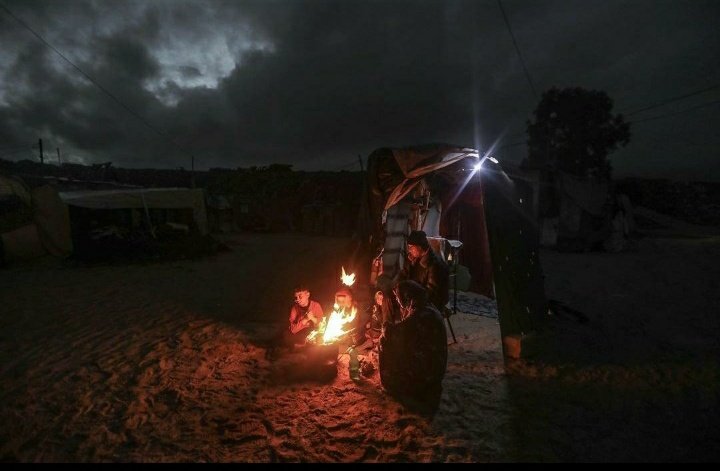‘We burned our clothes to stay warm’: Somali details Ukraine exit

GOOBJOOG NEWS/PRZEMYSL: Thousands of Africans, mostly students, based in Ukraine have been caught up in the war that erupted when Russia sent its troops across the border last week.
To date, the conflict has forced more than 670,000 people to flee abroad, according to the United Nations’ refugee agency, while an estimated one million others have been displaced within Ukraine.
Al Jazeera on Tuesday spoke to Mustafa Mohamed, a 31-year-old Somali youth leader and student liaison officer after he managed to reach a reception centre in the Polish city of Przemysl, the closest to the main border crossing between Poland and Ukraine.
Below is Mustafa’s story, in his own words. His account has slightly been edited.
“I have lived in Ukraine for almost 10 years – I went there to study and have a degree in economic management. After I finished my studies, I decided to stay and find work. There is a growing African community with many students. I speak the language and decided to become a student liaison officer.
“Before the war, everything was normal and calm – people had smiles on their faces. But all that changed last Thursday. Sirens went off in my city, Vinnytsia [west-central Ukraine]. Then the sirens got more frequent, like every hour. We heard a very large noise and then panic set in. There is a military installation in the city, people say it’s an arms depot for the military. We heard it was targeted.
“I never imagined there would be war here; politicians talk and say things but most times they don’t act on it.
“After that huge blast, I knew I had to leave to save my life.
“There are many Somali students, some from Somalia and other Somalis from Western countries like the United States, UK, Sweden and Finland. Most study medicine. Those with Western passports were evacuated by their embassies before the war started. Those of us with Somali passports stayed because we had nowhere to go. On Thursday, we got together and decided to leave because it was no longer safe.
Ukrainians first
“There were no trains and there were many people trying to get on buses, on anything that was moving. Officials prioritised Ukrainians. All other nationalities got on public transport only after Ukrainians. We, Somalis, decided we were not going to wait because there are hundreds of thousands of Ukrainians also trying to leave to escape the war.
“We managed to hire small buses to take us to the Polish border. They charged us more than the normal price.
“In total, there were 88 of us. We left on Friday. We put women and those who can’t speak the language on the first bus for safety reasons, because if anything went wrong, at least those of us who could speak Ukrainian could survive longer. Then the rest of us squeezed into the other two buses and made our way to the border.
“The shops were empty of food because everyone had rushed to get supplies. It was like the beginning of the coronavirus pandemic, but this time the shelves were empty not because of a virus but because of war. ATMs also had a limit on the cash you could take out.
“The traffic to the border was unbearable. A drive that would normally take six hours took us almost two days. There were checkpoints on the road manned usually by two officers. We didn’t see any military convoys.
“When we were 50km (31 miles) away from the border, the traffic came to a halt. Vehicles were not moving at all. We got off and made our way by foot. I saw many elderly people and children struggling. Everywhere you looked, there were people and vehicles as far as the eye could see.
African students struggle to make it out of Ukraine
“When we arrived at the border, the situation was even worse. Guards were overwhelmed and they were shouting constantly. There was a lot of pushing and screaming. People were very stressed. There was no food. It was freezing cold and children were crying.
“Guards let through 600 people at a time. Ukrainians first, of course. They let in Ukrainian women and children first, then Ukrainian men. Their people were their priority, which I can understand. The rest of us waited for our turn. This upset many non-Ukrainians who were trying to cross the border.
“I crossed the border today [March 1]. We had nothing to eat while we were waiting. We survived on chocolate bars that we bought from the shops before we left. At night, it got even colder. Last night, it was so cold we burned some of our clothes and bags to stay warm. We had nothing else to make a fire out of.
“From the border, the Polish authorities took us by bus and brought us here [Przemysl reception centre]. It is warm. There is food, there are toilets and we can take showers.
“For the first time since Friday, I will sleep in a bed, a warm bed. I haven’t decided what I will do next. I just arrived. I’m from Hargeisa [northern Somalia] and people there say, ‘Indispensable during the dry season is grass.’ For sure, it is definitely safer back home than Ukraine today.”
SOURCE: AL JAZEERA